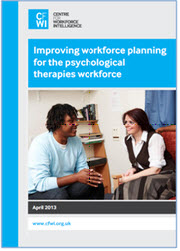Web-site restrictions
ACAT is moving to a new website shortly. Due to unforeseen technical issues, the launch has been postponed briefly until Tuesday, 6th May.
In preparation, this website no longer lets members renew their membership. ACAT Administration are likewise unable to process membership renewals until the new site opens.
Please do not update any personal details on your member/friend profile, as changes at this point will not be transferred to the new site.
Thank you for your patience, and we look forward to welcoming you to a new website after the Early May bank holiday.
More about CAT
 CAT is an integrative model of human development and of psychotherapy drawing on ideas as mentioned below. It is a fundamentally relational model, both in its view of human development and in its practice of psychotherapy. At its heart is an empathic, respectful and collaborative, meaning-making relationship between the client and therapist within the therapeutic boundaries.
CAT is an integrative model of human development and of psychotherapy drawing on ideas as mentioned below. It is a fundamentally relational model, both in its view of human development and in its practice of psychotherapy. At its heart is an empathic, respectful and collaborative, meaning-making relationship between the client and therapist within the therapeutic boundaries.
What are the origins of CAT?
CAT was developed in the early 1980’s by Dr Anthony Ryle at Guy’s and St Thomas’ Hospital in London. CAT developed as a public health response to the mental health needs of a busy inner London area, and this concern with access and equity remains at the heart of the model. He felt it important to offer a short-term focussed therapy for use in the health service; a therapy that integrated the best of different approaches to people’s problems and that could be researched and refined with the growing experience of clients and therapists.
Theoretically, CAT draws on:
- Psychoanalytic concepts of conflict, defence, object relations and counter transference (particularly from Donald Winnicott).
- Ideas from activity theory and dialogism introduced by Lev Vygotsky and Mikhail Bakhtin. (Dialogism is a particularly kind of dialogue, not limited to two people speaking to each other, but to the whole way in which we act towards each other and expect each other to act towards us.)
- George Kelly's Personal Construct Theory and work with repertory grids; a focus on how people make sense of their world ("man as scientist") and on common sense, co-operative work with patients.
- From cognitive approaches involving step by step planning and measurement of change; teaching patients self-observation of moods, thoughts and symptoms.
What sort of problems can CAT help with?
CAT tries to focus on what a person brings to the therapy (‘target problems’) and the deeper patterns of relating that underlie them. It is less concerned with traditional psychiatric symptoms, syndromes or labels.
CAT has been widely used to help people who have experienced childhood physical, emotional or sexual abuse, neglect and trauma, including people who self-harm. CAT is also used with people with eating disorders, addiction problems (like drugs and alcohol), obsessional problems, anxiety, depression, phobias, psychosis and bipolar illness. CAT therapists also work with adolescents, older people and people with learning difficulties, and in forensic settings.
CAT is mostly offered to individuals, but it can also be used effectively with couples, in groups and to help teams understand the ‘system’ in which they work – an approach called ‘contextual reformulation’.
What Qualifications Can I Expect the Therapist to Have?
ACAT can confirm that all the therapists listed on the ACAT Register are accredited CAT Practitioners or Psychotherapists.
CAT Practitioners usually have either core training as a mental health professional (e.g. as a Psychiatrist, Psychologist, Nurse, Social Worker or Occupational Therapist,) with a minimum of two years post-qualification experience, or previous training in counselling to an accredited level followed by a two year training in Cognitive Analytic Therapy with accreditation following successful completion.
CAT Psychotherapists have qualified as CAT Practitioners and have undertaken an additional in-depth two year training leading to this qualification.
To search the register for an Accredited CAT Therapist click here.
To find an Accredited Private CAT Therapist click here.
Both CAT Practitioners and CAT Psychotherapists count as Psychological Therapists in the Centre for Workforce Intelligence Review
 The Centre for Workforce Intelligence (CfWI) recently completed a Department of Health commissioned review of adult psychological therapies to improve workforce planning. It has recommended a consensus definition of what a psychological therapist is across all therapy modalities and provides data on what is currently known about this workforce - the focus is on non-IAPT services. The report is intended for policymakers and decision-makers across the NHS. ACAT took part in the consultations and we believe this is an important review from ACAT's perspective.
The Centre for Workforce Intelligence (CfWI) recently completed a Department of Health commissioned review of adult psychological therapies to improve workforce planning. It has recommended a consensus definition of what a psychological therapist is across all therapy modalities and provides data on what is currently known about this workforce - the focus is on non-IAPT services. The report is intended for policymakers and decision-makers across the NHS. ACAT took part in the consultations and we believe this is an important review from ACAT's perspective.
We are pleased that in April 2013, ACAT was accepted as one of the professional bodies currently providing training for psychological therapists. Importantly, the CfWI definition of a psychological therapist includes CAT Practitioners as well as CAT Psychotherapists, and CAT Practitioners are included within existing workforce numbers in the CfWI report.
The report can be found through this link http://www.cfwi.org.uk/publications/improving-workforce-planning-for-the-psychological-therapies-workforce/


CPD Event: CAT and Reflective Practice: Skills for Facilitation - offered by Catalyse
CPD Event: EDI Race and Culture CPD workshop - offered by CAT Cumbria
CPD Event: ACAT: The embodiment of reciprocal roles as a reflective
ACAT Annual Conference: 29th ACAT National Conference
ACAT AGM: Annual General Meeting
ACAT Annual Conference: ACAT National Conference 2025
Our Next 15 Events
8th May 2025
CAT and Reflective Practice: Skills for Facilitation - offered by Catalyse
17th May 2025
EDI Race and Culture CPD workshop - offered by CAT Cumbria
22nd May 2025
ACAT: The embodiment of reciprocal roles as a reflective
23rd May 2025
29th ACAT National Conference
23rd May 2025
Annual General Meeting
23rd May 2025
ACAT National Conference 2025
20th June 2025
CAT in the Perinatal Period - offered by Catalyse
8th July 2025
ACAT: Two Day Introduction to CAT - Online
9th September 2025
ACAT: Two Day Introduction to CAT - Online
18th September 2025
Restoring Regenerating and Rewilding residential - offered by the WildCAT SIG
1st October 2025
Inter-Regional Residential ACAT Psychotherapy Training in Cognitive Analytic Therapy
9th October 2025
Catalyse CAT Practitioner Training 2025-27
11th October 2025
Developing the CAT model CPD workshop - offered by CAT Cumbria
11th November 2025
ACAT: Two Day Introduction to CAT - Online
12th January 2026
Newcastle & NHSE (North East) CAT Practitioner Training 2026-2027
Help
This site has recently been updated to be Mobile Friendly. We are working through the pages to check everything is working properly. If you spot a problem please email support@acat.me.uk and we'll look into it. Thank you.


